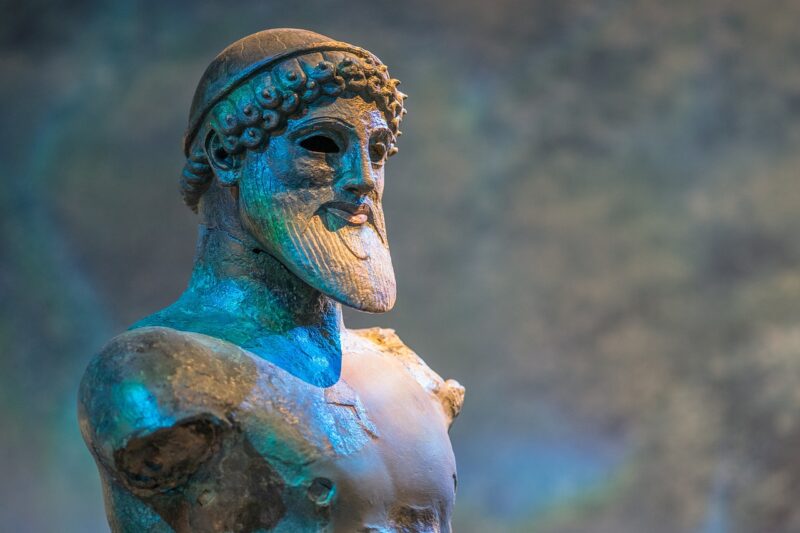The Role of Mythology in Ancient Societies: Why Myths Still Matter
November 9, 2024

Myths have long been an essential part of human history, providing a narrative framework that helps societies make sense of the world. From the vibrant tales of Greek gods and goddesses to the intricate epic stories in Hindu texts, mythology has played a crucial role in shaping cultures, values, and social norms across different civilizations. In this article, we will explore the significance of mythology in ancient societies and discuss why these ancient stories continue to hold relevance in today’s world.
1. Understanding Mythology: Definitions and Functions
Mythology encompasses a collection of traditional stories or legends that various cultures created to explain natural phenomena, human behavior, and the existence of deities. These tales serve multiple purposes, including:
- Historical Narratives: Myths often serve as a vehicle for passing down historical events, providing a sense of identity and continuity for societies.
- Moral Lessons: Many myths convey ethical messages, shaping the beliefs and behaviors of individuals and communities.
- Cultural Values: Mythology reflects a society’s cultural values and norms, revealing what is considered sacred and meaningful.
The way these stories are woven into the fabric of society can significantly impact beliefs and practices, influencing generations to come.
2. Mythology’s Role in Ancient Civilizations
Ancient societies relied heavily on mythology to comprehend the complexities of their environments, life, and death. Here are a few ways in which mythology influenced various civilizations:
A. Religious Practices
Religion and mythology are deeply intertwined. Many myths describe the origins and characteristics of gods, their interactions with humans, and the moral codes humans should follow. In ancient Egypt, for instance, the stories of Osiris and Isis served not only as religious texts but also reinforced the importance of familial loyalty and resurrection, affecting burial practices and rituals.
B. Social Structures
Mythology also dictated the social hierarchy within ancient communities. Often, rulers and leaders were depicted as divine or semi-divine figures, legitimizing their authority and power. The divine right of kings in Europe can be traced back to similar practices in ancient societies where deities were believed to choose leaders as vessels to maintain order and unity.
C. Understanding Natural Phenomena
Before the advent of modern science, myths provided explanations for events such as storms, earthquakes, or the changing seasons. The Greek myth of Demeter and Persephone, which describes the seasonal cycle of planting and harvest, serves as an early example of how societies made sense of natural occurrences through storytelling.
3. The Psychological Impact of Myths
Psychologists and anthropologists believe that myths resonate with the collective unconscious, acting as archetypes that reflect universal human experiences. Carl Jung, a prominent figure in psychology, suggested that myths and legends connect individuals to a deeper sense of identity and meaning:
- Personal Identity: Myths often portray the hero’s journey, a concept that can empower individuals by relating their personal struggles to the larger narratives of courage, sacrifice, and eventual triumph.
- Coping Mechanisms: Myths help individuals navigate the challenges of life—be it loss, love, or morality—by providing frameworks through which to understand their experiences. For example, the tragic myth of Orpheus and Eurydice gives insight into love, loss, and the delicate balance between hope and despair.
As such, mythology serves as a lens through which people view their lives and the world around them.
4. Why Myths Still Matter Today
In an increasingly modern world, the relevance of myths can sometimes seem diminished. However, their significance persists on various levels:
A. Cultural Heritage
Myths continue to be integral to the cultural heritage of societies. They inspire literature, art, and music, maintaining the narratives that inform cultural identity. Through storytelling, we connect with our roots and history, allowing older generations to pass down wisdom and knowledge through the younger ones.
B. Providing Meaning in a Complex World
In times of uncertainty, people often turn to myths to find meaning and solace. Modern adaptations of ancient tales help individuals confront contemporary issues such as morality, justice, gender, and identity. Movies like “The Lion King” resonate not only for their entertainment value but also because they touch upon core themes of family, loss, and legacy, mirroring ancient mythological narratives.
C. Psychological Connection
Just as they did in ancient times, myths allow individuals to tap into shared human experiences and emotions. From the reluctant hero to the transformative journey, these archetypical themes are etched into the human psyche, magnetizing modern audiences seeking relevance and connection.
5. Conclusion: Myths as Living Narratives
Mythology has played an essential role in shaping human societies, serving as a source of cultural identity, ethical guidance, and psychological support. The tales that have persisted over millennia are more than just stories; they are living narratives that adapt and influence us in today’s world. As we examine these narratives, let us remember that the wisdom contained within mythology can guide us, teaching valuable lessons about ourselves, our communities, and our shared humanity. Through this knowledge, the legacy of mythology will continue to offer insight and relevance, bridging the gap between the past and present for generations to come.







